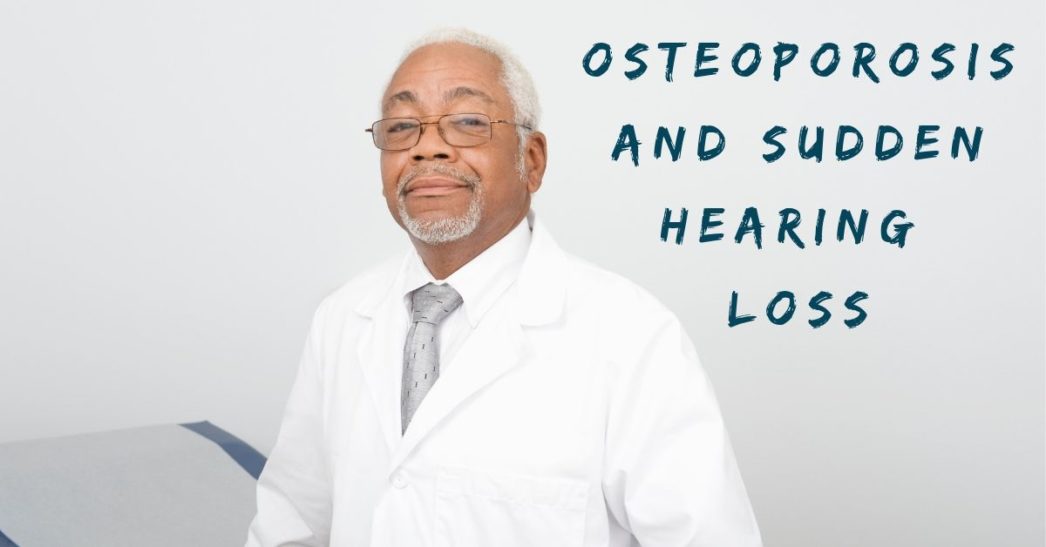What does the strength of our bones have to do with our hearing loss?
The inner machinations of our ears rely on the proper workings of tiny bones within the middle ear. They play a crucial role in our hearing process. The process of bone loss and regeneration begins to slow down as we surpass our twenties. By the time we are in our thirties many of us will have reached what is known as “peak bone mass.”
Once we reach middle age we are at a greater risk of osteoporosis. Osteoporosis is a condition that weakens the density of our bones causing them to be brittle and weak and making them more vulnerable to breakage and fracturing. This progressive condition is greatly affected by some of the following factors that we have little control over:
- Size of body frame. Women and men with a smaller bone frame have less mass to sustain and to maintain their size.
- Family history. If your parents or sibling suffer from osteoporosis, chances are greater that you will as well.
- Sex. Women are at higher risk, specifically, Asian and white women, and that risk increases after menopause.
- Age. It progresses as we get older.
- Race. Asians and Europeans are in a higher risk category.
There are many other factors involved such as diet, hormone levels, medications, and poor lifestyle choices. We have to keep in mind that the middle ear includes ossicles; three tiny bones known as the hammer, anvil, and stirrup. They are instrumental in transmitting sound waves in our hearing process.
As we age, our ability to regenerate bone is outpaced with our loss of bone. It goes to follow that osteoporosis and hearing loss go hand in hand. Our chances of hearing loss can and will increase if osteoporosis is present.
What does the research show us?
There was a comprehensive study in Korea held between 2009 to 2011 which entailed almost 5,000 participants, both male and female, over the age of 50. The study focused on the link between age-related hearing loss and osteoporosis using information from the Korea National Health and Nutrition Examination Survey. It examined the data of those that were diagnosed with osteoporosis against those that were not. After the data was analyzed, it was found that the risk of hearing loss is increased by 1.7-fold when osteoporosis is present.
In yet another study out of Taiwan, over 10,000 residents with osteoporosis between the years 1999 and 2008. Based on data from national insurance records, it was compared to another group of over 30,000 residents whom were clear of osteoporosis. Results showed that the number of people diagnosed with osteoporosis became inflicted with sensorineural, or sudden hearing loss in 2011 was double that of the number in the second group.
Kai-Jen Tien, MD, of the Chi Mei Medical Center in Taiwan and an author of the study, states, “A growing body of evidence indicates that osteoporosis affects not only bone health, but the cardiovascular and cerebrovascular systems…Our findings suggest sudden sensorineural hearing loss (SSHL) can be another broader health problem connected to osteoporosis.”
We can positively affect our health right now and for the future.
Communication! It is best to communicate and be honest with your primary physician or your audiologist with regards to maintaining your overall health. Be aware and discuss with them about the following:
- Hormone imbalances or the low production of certain hormones
- Glandular issues
- Diet and eating disorders
- Medical conditions like cancer or rheumatoid arthritis
- Alcohol and tobacco intake
- Exercise routines
Prevention!
- Keep a balanced body weight, too much or too little is harmful, and keeps you vulnerable to breakage and fracturing.
- We need Vitamin D in order to process calcium. If you cannot get enough sun or sun exposure is not recommended for you then supplements for a daily intake of 400 IU (International Units) per day.
- Protein intake is available from soy, nuts, legumes, seeds, dairy, and eggs if you are looking for sources other than meat.
- Calcium intake after the age of 50 should increase from 1000 milligram to 1,200 milligrams daily and can easily be found in leafy vegetables, soy, salmon, cereals, and dairy.
- Exercise routines that include a proportionate mix of weights, cardio, and balance. Tai chi is a highly recommended practice for maintaining balance.
The above information and suggestions are to be included in your conversation with a health professional so that your treatment plan is tailored to your individual needs.
Comprehensive Ear and Hearing
At Comprehensive Ear and Hearing, we are here to answer with any questions you may have concerning your hearing health. We look forward to your first appointment with us and to starting a relationship with the health of your hearing and your overall wellness.


